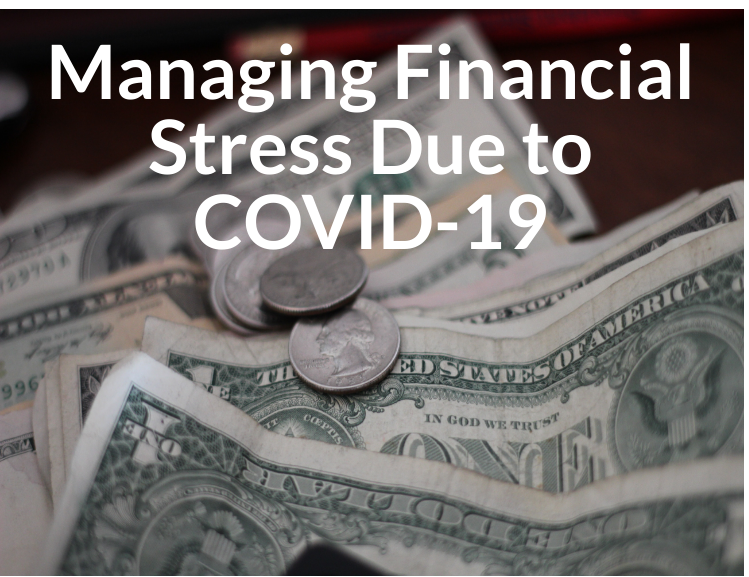How to Reduce Financial Anxiety
How to Reduce Financial Anxiety

Unfortunately, there’s been no shortage of bad news lately – from COVID-19, to unemployment numbers, to businesses closing their doors. We’re living in unprecedented times, where many of us are stuck in our homes, and possibly fearful of the outside world and all that comes along with it. That certainly seems like an environment that would naturally breed anxiety, especially when it comes to finances. Whether you’re an investor that saw your portfolio take a big hit, or you’re working on building up your nest egg, there are realistic things you can do (in good times and in bad!) to best prepare yourself to withstand hard times.
1. Plan/Budget: The dreaded “B” word. However, we’re not talking listing out every dollar you’ll ever spend and where it will go. That’s not realistic or a good use of anyone’s time. A good first step towards getting a better handle on your finances is building a budget. As we talked about in the webinar, a lot of the time the hardest part is just getting started. Start with listing out your expenses. Sometimes seeing the numbers on the page can help you realize where you can make cuts. Once that is done, a good rule of thumb is known as the rule of 50/20/30. It states that 50% of your paycheck should go towards non-discretionary expenses, 20% should go towards savings (pay yourself first!), and the remaining 30% can be used for discretionary (fun!) spending.
2. Debt: If you find yourself in debt, the best thing to do is to come up with a payment plan to try to limit late fees and penalties. Considering everything currently going on, it makes sense to reach out to your lender if you’re having trouble making payments. There may be options available to assist you. If you find yourself having a difficult time juggling different payments and interest rates, debt consolidation could make sense. If you decide to go that route, you’ll want to engage a non-profit debt consolidator. A quick google search should do the trick.
3. Professional Help: There’s a reason that there is an entire industry dedicated to helping people with their finances – it’s not easy! If you want to enlist the help of a professional (on an ongoing or hourly basis), The National Association of Personal Financial Advisors has a search tool on their website which can help you find an advisor in your area. Any firm registered with NAPFA will have a fiduciary duty to you, which means they have taken an oath to put your needs and best interests before anything else.
Even though we’re surrounded by negative news, there are still positive steps you can take to improve your finances and reduce anxiety that comes along with it. If you missed our full webinar on Experiencing Financial Stress Due to COVID-19? Learn Stress-Relieving Tips from Anxiety and Financial Experts, you can find it here.











